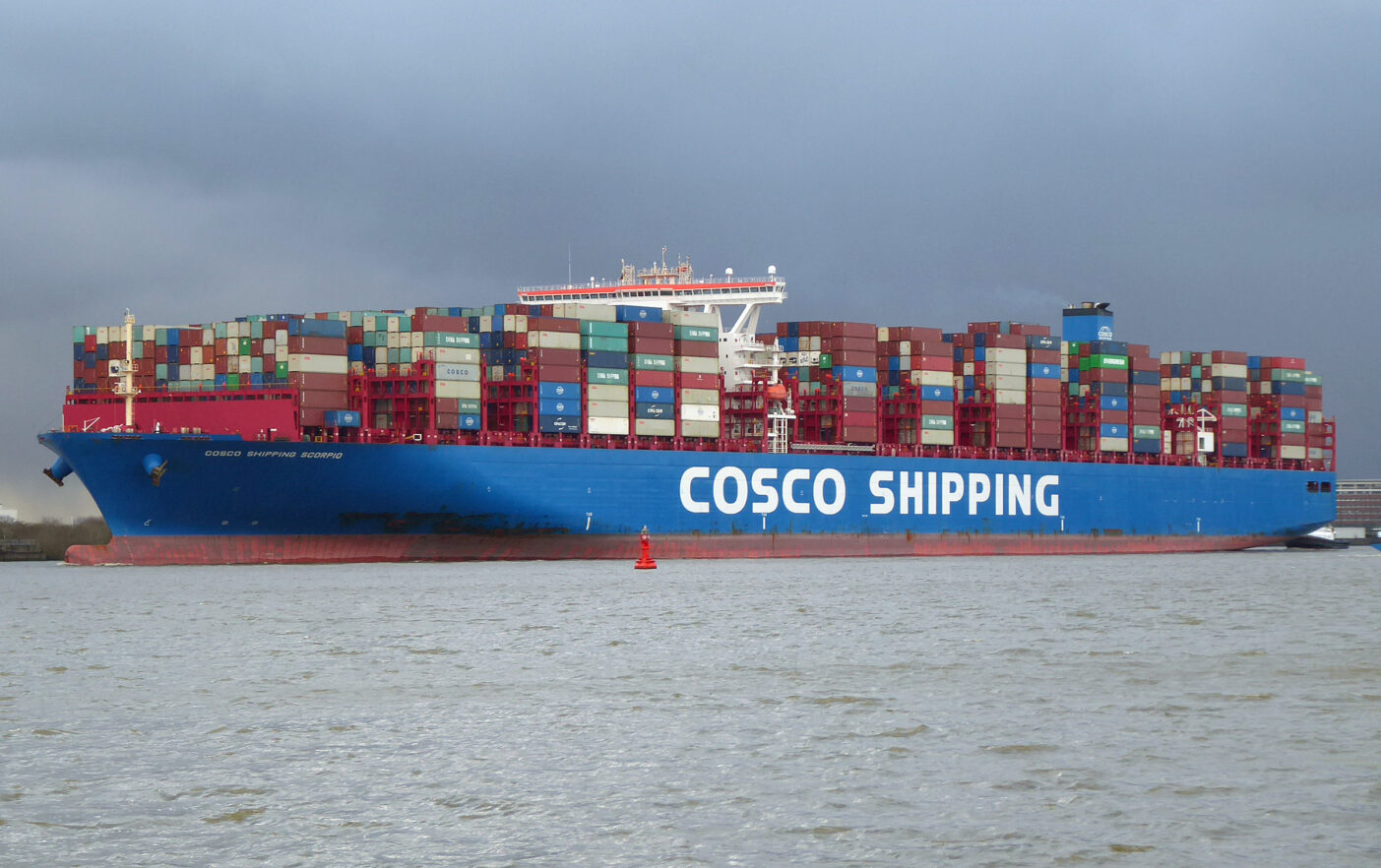All the discontent in Germany over the agreement between the Chinese Cosco and the port of Hamburg

How the press, politics and public opinion in Germany have reacted to the agreement to grant a share of a terminal in the port of Hamburg to the Chinese state-owned logistics giant Cosco. Pierluigi Mennitti's article from Berlin
The latest reminder of the unscrupulous German trade policy towards authoritarian countries has arrived from Kiev. However, it was not Volodymyr Zelenski who launched it but the president of the Bundesrepublik Frank-Walter Steinmeier himself, one of the architects of Ostpolitik 2.0 which marked the energetic appeasement towards Russia in the Merkel era. And it is not Moscow, this time, at the center of Steinmeier's warning but China and, quite blatantly, the agreement for the concession of a share of one of the three terminals of the port of Hamburg to the Chinese state-owned logistics giant Cosco.
From the Ukrainian capital where he went to redeem years of misunderstandings and mistrust, Steinmeier took a cue from the Russian lesson to remember that "there is no guarantee that the intensification of economic relations will also bring political rapprochements" and that the experience with Putin he destroyed the German foreign policy mantra of "change through trade". He spoke of Moscow so that in Berlin Beijing was meant.
But in Berlin Olaf Scholz, after so much silence that has become clear as the great sponsor of the Hanseatic agreement with Cosco, goes straight on his path that leads to the tightening of the port pact with China before his official visit to Beijing. A visit in a flash format, since it will last only one day and does not include any overnight stay in the Chinese capital, and yet enriched by the usual presence of many German industry managers, even if – as the Handelsblatt reveals – the forced stages of the journey are not too much enticing entrepreneurs to be part of the expedition.
Faced with the resistance of the greens and liberals, the chancellor has decided to make his second flight forward, after the one on nuclear power, and to impose a compromise solution that gives the green light to the operation by saving face (ta). The agreement signed between the Hamburg port company – Hamburger Hafen und Logistik (HHLA) – and Cosco provided for the acquisition of 35% of one of the three terminals of the Hanseatic port by the Chinese giant, the Tollerort Container Terminal .
The solution that Scholz pulled out of the hat will allow the Chinese to acquire a 24.9% stake. In this way, the chancellor's Sherpas argue, the Chinese state-owned group will not have a blocking minority capable of exerting influence on the decisions of the company that manages the port terminal. The government will have to have its say within this week, perhaps as early as today on the occasion of the cabinet council, since the deadline set to ban the agreement expires on 31 October.
However, the political controversies have not died down and the game within the majority is still open. Greens and liberals do not seem convinced at the moment of the chancellor's ploy (who was Mayor of Hamburg for 7 years). The president of the Grünen, Omid Nouripour reiterated his opposition, highlighting the "danger to critical infrastructure in Germany". After the Russian experience it must no longer happen that one becomes fatally dependent on autocratic states, continued the ecologist, especially since even with a reduced purchase "Cosco would gain too much control and could at any time decide to ban the docking of Taiwanese container ships at the docks of the port of Hamburg ”.
According to news reports, the six ministries involved in evaluating the terms of the agreement expressed a negative opinion. And the holder of Justice, the liberal Marco Buschmann, explicitly reiterated his and his party's opposition on the eve of the ministerial council.
But Scholz must not only go against the wind within his own majority. Huge criticism also comes from a large part of the German press, of every editorial orientation. From the progressive Süddeutsche Zeitung to conservative newspapers such as Die Welt and Frankfurter Allgemeine Zeitung , passing through the business newspaper Handelsblatt, the consideration is unanimous: a risky step that disavows what the chancellor said he had learned from the Russian affair. In her editorial, Frankfurter writes: “German politics in recent decades seems to almost ignore this aspect: Germany does not have a strategy for raw materials, energy security has long been an underestimated issue and there have also been illusions about China. There is a lot of work to be done to make the country fit for the future ”.
As for public opinion, a Zdf poll reveals that the time of naivety towards authoritarian regimes seems to be over and that the experiences of Chinese dependence on health products during the pandemic and with Russian dependence on energy supplies have left their mark . In fact, 84% of those interviewed in the survey believe it is necessary to reduce German dependence on Beijing and only 13% consider it a matter of little relevance.
This is a machine translation from Italian language of a post published on Start Magazine at the URL https://www.startmag.it/smartcity/germania-cosco-porto-amburgo/ on Wed, 26 Oct 2022 07:39:28 +0000.
